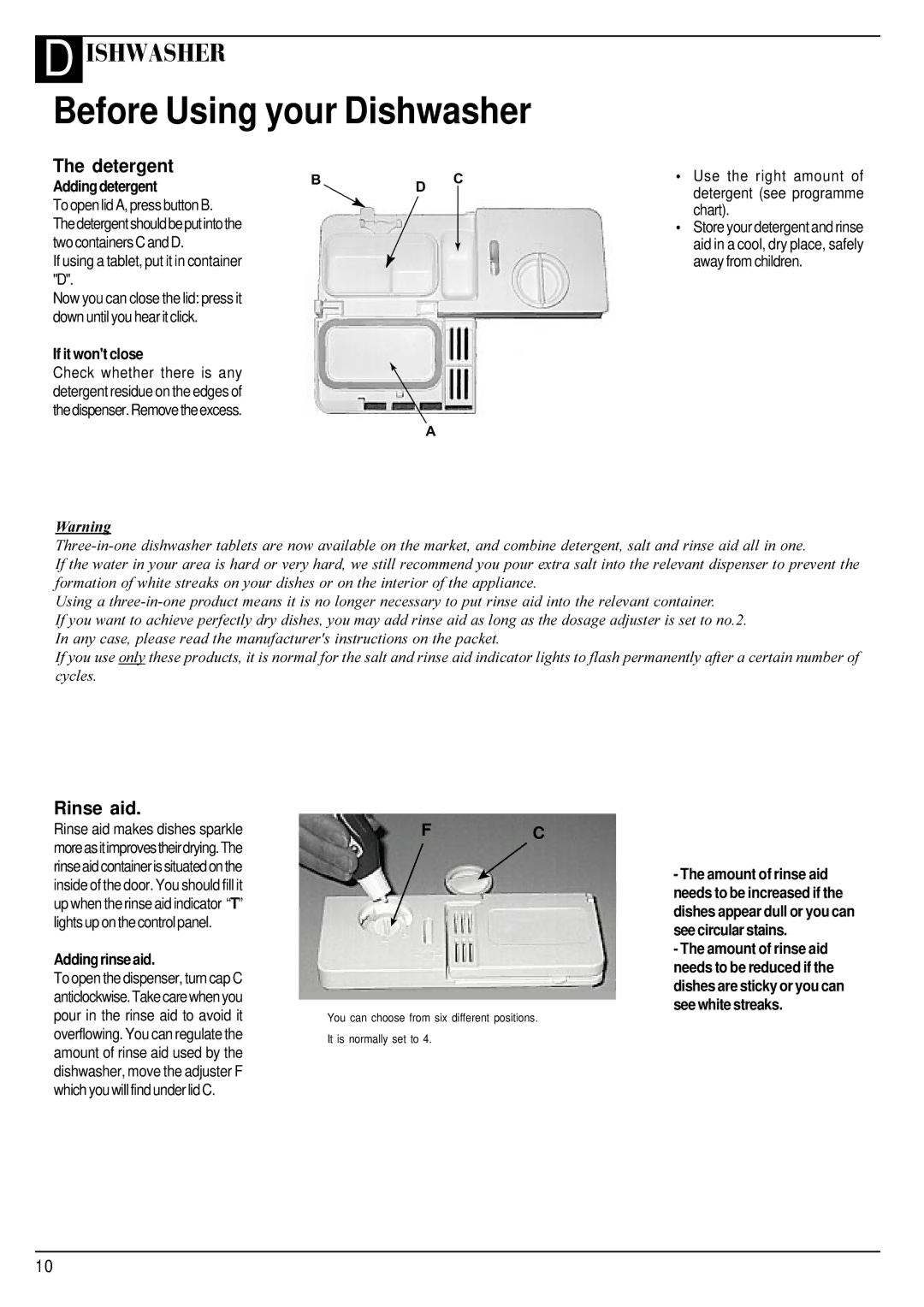
D ISHWASHER
Before Using your Dishwasher
The detergent
Adding detergent | B | D | C | |
|
|
| ||
To open lid A, press button B. |
|
|
|
|
Thedetergentshouldbeputintothe |
|
|
|
|
two containers C and D. |
|
|
|
|
|
|
|
| |
If using a tablet, put it in container |
|
|
|
|
"D". |
|
|
|
|
Now you can close the lid: press it |
|
|
|
|
down until you hear it click. |
|
|
|
|
If it won't close
Check whether there is any detergent residue on the edges of thedispenser.Removetheexcess.
A
•Use the right amount of detergent (see programme chart).
•Store your detergent and rinse aid in a cool, dry place, safely away from children.
Warning
If the water in your area is hard or very hard, we still recommend you pour extra salt into the relevant dispenser to prevent the formation of white streaks on your dishes or on the interior of the appliance.
Using a
If you want to achieve perfectly dry dishes, you may add rinse aid as long as the dosage adjuster is set to no.2. In any case, please read the manufacturer's instructions on the packet.
If you use only these products, it is normal for the salt and rinse aid indicator lights to flash permanently after a certain number of cycles.
Rinse aid.
Rinse aid makes dishes sparkle moreasitimprovestheirdrying.The rinseaidcontainerissituatedonthe inside of the door. You should fill it up when the rinse aid indicator “T” lights up on the control panel.
Adding rinse aid.
To open the dispenser, turn cap C anticlockwise.Takecarewhenyou pour in the rinse aid to avoid it overflowing. You can regulate the amount of rinse aid used by the dishwasher, move the adjuster F which you will find under lid C.
FC
You can choose from six different positions.
It is normally set to 4.
-The amount of rinse aid needs to be increased if the dishes appear dull or you can see circular stains.
-The amount of rinse aid needs to be reduced if the dishes are sticky or you can see white streaks.
10
